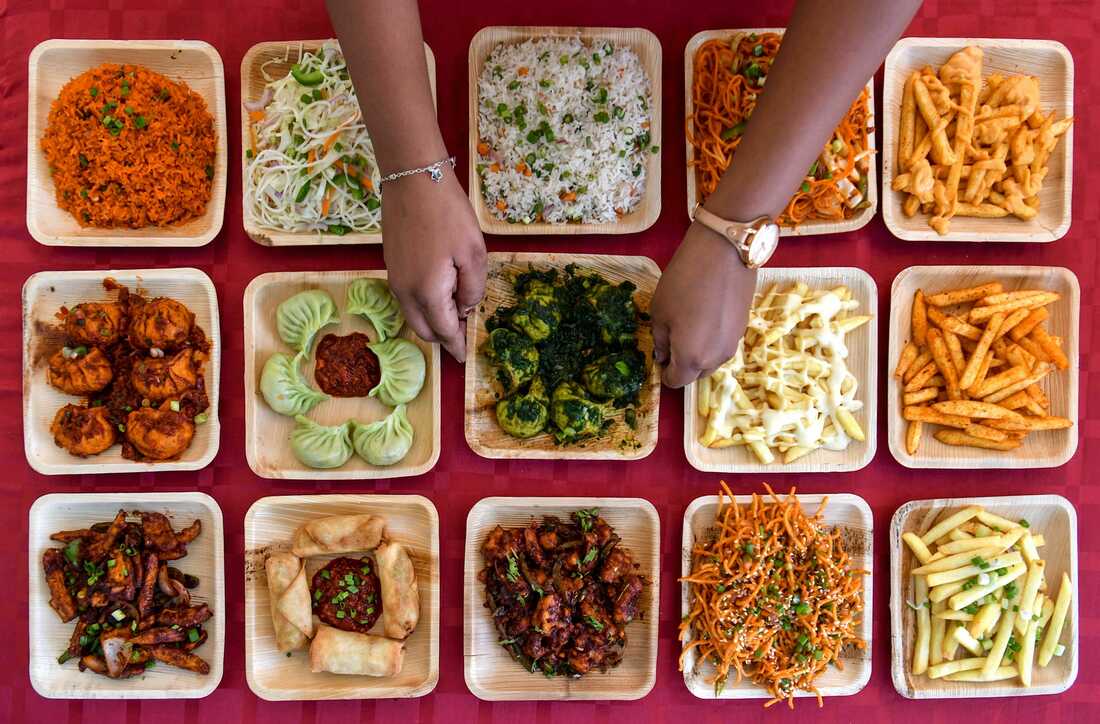[ad_1]

Lots of factors impact what we take in, anything from flavor preferences, to budgets and lifestyle. New analysis suggests genetics may perhaps also engage in a function.
Manjunath Kiran/AFP by means of Getty Visuals
disguise caption
toggle caption
Manjunath Kiran/AFP by means of Getty Photos

Lots of aspects impact what we eat, all the things from flavor tastes, to budgets and culture. New exploration suggests genetics might also participate in a purpose.
Manjunath Kiran/AFP via Getty Visuals
Persons are motivated to attempt a vegetarian diet regime for distinct factors – from ethical and spiritual, to prospective overall health and environmental advantages. But numerous folks have a tricky time sticking with it. In simple fact scientific tests display lots of self-claimed vegetarians really do eat some animal goods.
“A ton of men and women who want to be vegetarian are perhaps not capable to,” says Dr. Nabeel Yaseen, of Northwestern University Feinberg College of Drugs. “We wished to know if genetics is portion of the motive,” he says.
Yaseen and his collaborators in contrast the DNA of about 330,000 men and women, employing data from the United kingdom Biobank initiative. The research involved 5,324 vegetarians, who experienced not eaten any animal flesh or products derived from animal flesh for at the very least a person calendar year.
They identified 34 genes that may well enjoy a job in adhering to a rigorous vegetarian diet regime. And they determined 3 genes that are much more tightly connected to the trait.
“What we can say is that these genes have some thing to do with vegetarianism,” Yaseen suggests. “Potentially vegetarians have different variants of these genes that make them in a position to go after a stringent vegetarian eating plan,” he explains. The research is printed in PLOS One, a peer-reviewed science journal.
Deciphering the genetic job is not accurately an simple riddle to fix. Human beings have hundreds of genes and there are thousands and thousands of small versions in DNA developing blocks, acknowledged as single nucleotide polymorphisms (SNPs,) where by you can see variations concerning people today.
To detect SNPs that are statistically affiliated with the certain trait of adhering to a vegetarian diet program, Yaseen and his colleagues did a genome-wide affiliation research.
“You happen to be searching for markers in the genome, basically trying to see if a particular trait tracks with a particular area of the genome,” describes Yaseen. When they located a SNP related with vegetarianism, they appeared to see the genes about it in the exact area.
Of the a few genes most strongly linked with vegetarianism, the authors say two of them (acknowledged as NPC1 and RMC1) have critical functions in lipid – or fats – metabolic rate. The analyze can not respond to precisely how genetic discrepancies could condition or influence vegetarians, but Dr. Yaseen has some suggestions.
“1 speculation – which is remarkably speculative – is that maybe there is a lipid nutrient, or nutrition, in meat that some people have to have and many others never,” he suggests.
Plenty of elements influence what we consume, every thing from our flavor tastes, to our budgets to our culture. So, the plan that food stuff choice is also influenced by genetics is not surprising, Yaseen says.
But this is just the very first stage. He claims much more study is desired to figure out which genes – and which variants – might be significant.
Yaseen details out the latest review is limited to white Caucasian participants. “Ethnicity is a confounding element,” he claims. For instance, if the research had incorporated folks from India, in which vegetarianism is extra widespread, you might see genes or SNPs that are involved with staying Indian instead than currently being a vegetarian.
The concept that some persons may locate it less difficult to follow a vegetarian diet regime because of to genetic predisposition is interesting, suggests Christopher Gardner, a food stuff scientist at Stanford College. And he factors out that men and women really don’t need to have to go completely vegetarian to see benefits.
He details to investigate that exhibits impacts on human health and planetary health and fitness would be significant, even if people just lowered the amount of meat they try to eat every 7 days.
“There is clearly an vital gain – and most likely far more sensible benefit – of cutting down meat without slicing it out absolutely,” Gardner says.
This tale was edited by Jane Greenhalgh
[ad_2]
Source url



